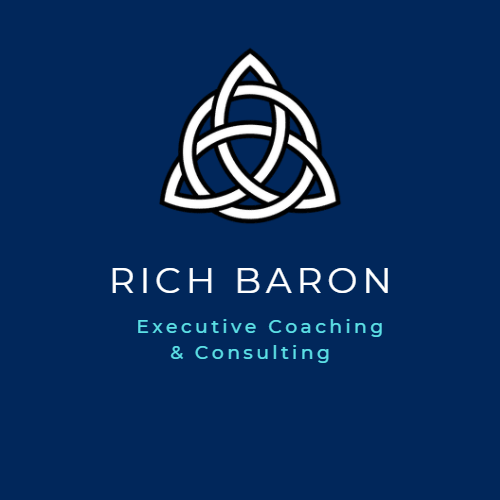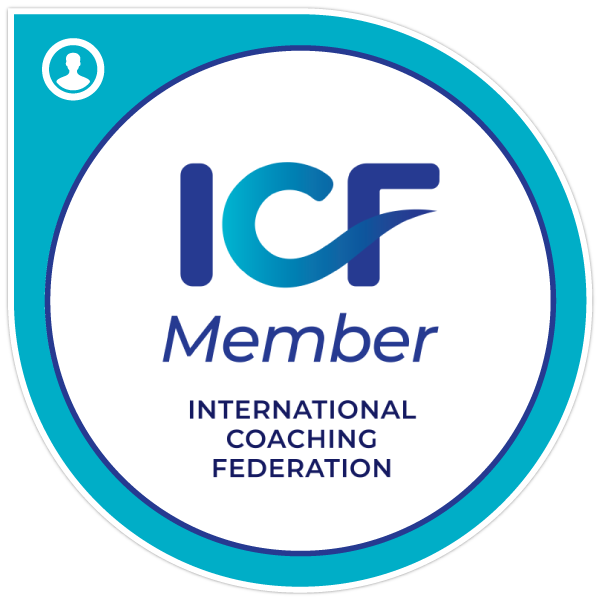Turning Rejection into a New Beginning
Rich Baron • February 11, 2024
Learn to Embrace Rejection as a Powerful Teacher
In addition to being an Executive Coach, I have had the opportunity to work as a volunteer job coach for the past four years in a professional job networking group. This has truly been one of the greatest blessings in my life to work with so many wonderful people.
Above all, my goal as a volunteer job coach is to empower individuals to regain control over their career trajectory and instill a sense of hope for a better future. I believe that everyone deserves to find fulfilling work, and I am grateful for the opportunity to serve others during their time of need. However, one of the issues I see time and again is the fear of rejection.
When job seekers have spent a significant amount of time in their careers or with a specific organization, the fear of rejection can be particularly paralyzing. These individuals may have built up a strong sense of identity and competence within their current role, and the thought of being rejected for a new position can be extremely daunting.
One reason for this fear is the potential for a blow to their self-esteem. After investing years of their lives into a specific career path or organization, being rejected can make them question their abilities and worth. They may fear that a rejection could impact their professional relationships and damage their reputation. The fear of judgment from peers and colleagues can be particularly crippling. It can be a significant barrier to taking the risk of applying for new positions.
Moreover, long-term job seekers may also worry about how their experience and qualifications will be perceived by employers. They may fear that potential employers will view their long tenure in a specific role or company as a negative, implying limited adaptability or a lack of ambition. This fear can be a significant barrier to taking the risk of applying for new positions, seeking new opportunities, or even pursuing growth in a future position or organization.
Frankly, rejection is a universal experience, but what if I told you that beyond that fear lies the key to a bold and courageous life?
Reframing Rejection
As job seekers navigate through the turbulent waters of the job search, they will encounter obstacles and setbacks. Rejection is one of those obstacles that you will inevitably encounter. However, by knowing that rejection is just a temporary visitor. You remind yourself that every failure is an opportunity for learning for improvement.
Rejection can teach us valuable lessons about ourselves and our goals. It pushes us to evaluate our actions, beliefs, and approaches, helping us learn from our shortcomings and make necessary adjustments. It encourages us to reflect on what we truly want and what aligns with our values. Through this process, we can gain clarity, resilience, and determination to pursue our dreams.
Rejection can also catalyze personal growth. It invites us to step out of our comfort zone and face our fears. When we confront rejection head-on, we build resilience and develop a stronger sense of self. Each rejection becomes a steppingstone that brings us closer to our goals, as we learn to handle setbacks and push past our own limiting beliefs.
By reframing rejection, we can see it as an opportunity for growth and self-improvement. Instead of viewing it as a negative judgment of our worth, we can recognize that it simply means that a particular path or person may not be the right fit for us at that moment. This perspective allows us to free ourselves from the fear of rejection's grip and move forward with confidence and resilience.
Rejection can teach us valuable lessons about ourselves and our goals. It pushes us to evaluate our actions, beliefs, and approaches, helping us learn from our shortcomings and make necessary adjustments. It encourages us to reflect on what we truly want and what aligns with our values. Through this process, we can gain clarity, resilience, and determination to pursue our dreams.
Additionally, reframing rejection allows us to detach our self-worth from external validation. Instead of seeking approval from others, we focus on cultivating self-acceptance and self-belief. We understand that our worth is not dependent on the opinions or acceptance of others. This shift in perspective empowers us to embrace our authentic selves and pursue what truly fulfills us, regardless of external judgments.
Beyond Rejection
Rejection is a common part of the job search process, but it can be disheartening and challenging to navigate. If there are 250 applicants for a position, 249 will be rejected. However, it's important not to let rejection discourage you from pursuing your career goals. Instead, view it as an opportunity for growth and learning.
Beyond the fear of rejection lies a world full of untapped potential. Each rejection you overcome brings you closer to the person you aspire to be. You meet new people, explore new ideas, and discover hidden talents within yourself. It is in the face of fear that you uncover your true capabilities.
Let’s look at some of the tools you can use to rid yourself of the fear of rejection and find that untapped potential.
1. Practice Self-Empathy
- I am not talking about feeling sorry for yourself, self-empathy is not the same as self-compassion. Self-compassion involves treating yourself with the same kindness, concern, and support you’d show to a good friend. Self-empathy simply requires you to notice and recognize what is happening in you. Take the time to feel the emotions that arise, whether they are anger, sadness, or pain. Know that it is okay to experience these emotions and know they will not last forever, and then take action to recognize rejection for what it is and move on (a special thank you to my niece, Brittney, for reminding me that taking the time to grieve and reflect is necessary to clear the air and move forward).
2. Shift Your Mindset
- One of the first steps in conquering the fear of rejection is to shift your mindset. Instead of seeing rejection as a personal failure or a reflection of our worth, we can view it as a life lesson in success. Every rejection is simply a redirection towards something better suited for us.
3. Push Beyond Your Comfort Zone
- Life truly begins at the end of our comfort zones. For many, this is difficult and frightening to comprehend. However, when you take a deep breath and leap into the unknown, leaving behind the safety of what you once knew, the ground disappears beneath you, and a newfound freedom envelops your spirit. The fear of rejection may still linger, but now it is intertwined with hope and the possibility of growth. As you continue to push beyond your comfort zone, you begin to see the world from a different perspective. The once intimidating aspect of your job search now becomes less daunting, and the fear of rejection starts to lose its power to intimidate.
4. Fight Rejection with Resilience
- Another powerful tool in overcoming the fear of rejection is resilience. Rejection and failure are inevitable in life, no matter how talented or likable we may be. By developing resilience, we bounce back from rejection stronger and more determined than ever before. We embrace failure as a crucial part of the journey and view each rejection as an opportunity to grow. With each rejection, you become more resilient and better equipped to face the next hurdle. You learn to refine your approach, to adapt and adjust. You realize that failure is not an indication of your worth or abilities but rather a crucial step towards a stronger version of yourself.
5. Cultivate Self-Confidence and Self-Worth
- By recognizing and valuing our unique strengths and abilities, we build a solid foundation of self-assurance. Do not become stagnant during your job search but rather continuously challenge yourself to learn and grow. This can be through acquiring new skills, seeking new knowledge, or pushing yourself to take on new and exciting opportunities. The more you invest in your personal growth, the stronger your self-confidence and self-worth will become. This inner strength allows us to weather the storms of rejection, knowing that we can achieve greatness.
6. Perseverance and Grit
- I emphasize the importance of perseverance and resilience (grit) in the face of any challenge in our lives. The job search can be a long and arduous journey, and individuals need to maintain their motivation and continue putting in the effort. Provide yourself with strategies to stay organized, track progress, and don’t forget to celebrate small victories along the way to keep the momentum going. Set realistic goals and challenge yourself every day to be better than you were yesterday. Most importantly, do not ever give up on yourself as this may be the most important learning experience in your life. Embrace the time you have to improve.
7. Inventory Your Unique Skills and Talents
- I help those I work with in their job search to recognize their unique skills, strengths, and accomplishments, and teach them how to effectively communicate these qualities to potential employers. I challenge them to take a personal inventory of their unique skills and talents by writing them down using pen and paper, not on a computer or tablet. skills and talents truly This is not a resume, but rather a brain dump that allows you to take a deep look at how valuable you are. By highlighting your unique achievements, skills, and talents, rejection then becomes viewed as a temporary setback rather than a personal failure.
8. Surround Yourself with a Support Group
- It is essential to surround ourselves with a supportive network of friends, family, and mentors. These individuals can provide comfort, guidance, and encouragement when we face rejection. Their belief in us can help us push through our fears and continue pursuing our dreams. There are few times in life that you will feel as much stress as during a job search. Being surrounded by those who truly care for you and want to see you succeed can truly dampen the impact of rejection. Most importantly, if you feel that you are struggling more than you feel you are capable of, your support group can be there to help you see the light of day.
Wrapping Up
So, dear reader, embrace the fear of rejection. See it as a catalyst for growth and transformation. Take that leap off the metaphorical cliff and dive into the unknown. Beyond fear lies a world full of possibilities, waiting to be explored by those courageous enough to embrace rejection as a part of the journey towards the next best version of yourself.
Let us dive into the unknown, hand in hand, supporting each other as we explore the empowering journey beyond fear. Together, we will rise above the stormy sea, embracing rejection as a catalyst for growth and becoming the architects of our destinies. Life truly begins when we can face our fears, accept that rejection is part of life, and realize that it is through rejection that we grow, learn, and ultimately live a more fulfilling and authentic life.
Reach out to me
and let's talk about your job search.
This blog is dedicated to all of the job seekers that I have been honored to be part of their lives. I have been blessed by each of you and have learned so many powerful life lessons. Thank you!
About the Author
Rich Baron holds the esteemed title of Master Certified Intelligent Leadership Executive Coach at John Mattone Global. With a wealth of expertise spanning over 25 years, he has excelled in various realms such as cultural transformation, operational leadership, executive positions, and coaching individuals from emerging leaders to CEOs. Together with his coaching partner, Maikel Bailey, Rich hosts "Mainline Executive Coaching ACT," a podcast acknowledged by Feedspot in 2023, and again in 2024 as the foremost Executive Coaching Podcast worldwide. This recognition is based on an evaluation of numerous podcasts on the internet, taking into account factors such as web traffic, social media followers, and timeliness. The podcast enjoys a substantial following in more than 60 countries and 550 cities across the globe.




